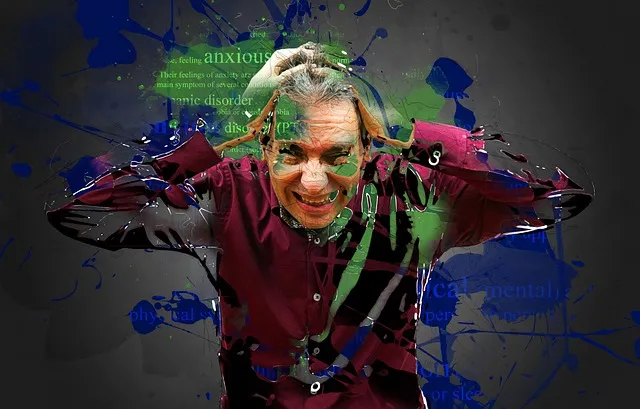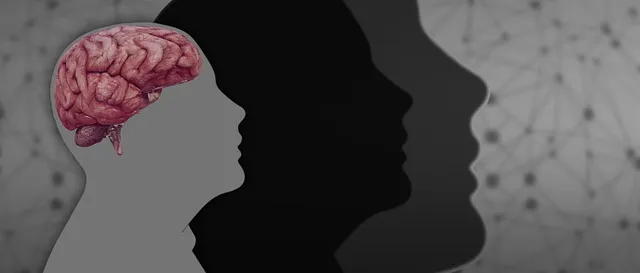Mental health conditions significantly impair social interactions, hindering relationship building and support networks. Kaiser's Centennial inpatient services address these challenges through holistic care, specializing in social skills training using techniques like Compassion Cultivation and mindfulness to empower patients with long-term management tools, fostering recovery and transforming mental healthcare in the area. (SEO keyword: does Kaiser have inpatient mental health Centennial)
Social skills training is an essential component of managing mental health conditions, offering individuals tools to navigate social interactions with confidence. This article explores how structured programs, like those provided by Kaiser’s inpatient mental health services in Centennial, can significantly improve outcomes. We delve into the impact of mental health on social relationships and present effective strategies tailored for clinical settings. Understanding these approaches is crucial for fostering connection and enhancing well-being among individuals navigating mental health challenges.
- Understanding the Impact of Mental Health Conditions on Social Interactions
- The Role of Kaiser's Inpatient Mental Health Services in Centennial
- Effective Strategies for Social Skills Training in a Clinical Setting
Understanding the Impact of Mental Health Conditions on Social Interactions

Mental health conditions can significantly impact an individual’s social interactions and overall ability to connect with others. Conditions such as depression, anxiety disorders, and psychotic spectrum disorders often affect a person’s communication skills, emotional regulation, and overall confidence in social settings. This can lead to difficulties in forming and maintaining relationships, which is crucial for well-being and recovery. For instance, someone with severe depression might find it challenging to initiate conversations or express their feelings, potentially causing isolation and loneliness.
The impact extends beyond the individual; it also affects their support networks and communities, including facilities like Kaiser’s inpatient mental health services in Centennial. Understanding these social implications is vital in developing effective support systems. This involves recognizing the unique challenges faced by individuals with mental illness and promoting inclusive environments. By addressing the stigma surrounding mental illness and implementing successful stigma reduction efforts, we can foster better social integration for those struggling with their mental health. Additionally, stress management techniques and risk assessment tools for professionals can further enhance supportive interactions, ensuring a holistic approach to care.
The Role of Kaiser's Inpatient Mental Health Services in Centennial

Kaiser’s Inpatient Mental Health Services in Centennial play a pivotal role in providing comprehensive care for individuals navigating mental health challenges. These services offer a safe and supportive environment, enabling patients to focus on their recovery through specialized programs tailored to their unique needs. With a dedicated team of healthcare professionals, Kaiser focuses not only on treating symptoms but also on fostering resilience and enhancing coping strategies.
The hospital’s approach incorporates innovative practices like Compassion Cultivation, which aims to build self-compassion and improve self-esteem, addressing the holistic well-being of patients. Additionally, burnout prevention strategies are integrated into the care model, ensuring that patients receive not just treatment but also tools for long-term mental health management. This multi-faceted approach sets Kaiser apart in the Centennial healthcare landscape, offering a transformative experience for those seeking inpatient mental health services.
Effective Strategies for Social Skills Training in a Clinical Setting

Social Skills Training in a Clinical Setting plays a pivotal role in enhancing recovery for individuals with mental health conditions, especially those receiving care at inpatient facilities like Kaiser’s Centennial location. Effective strategies often involve structured, group-based sessions that encourage active participation and real-time practice. Facilitators can model and teach essential social cues, communication techniques, and conflict resolution skills tailored to each client’s needs.
Empathy Building Strategies, such as role-playing scenarios and Mindfulness Meditation exercises, are powerful tools within this framework. Role-playing allows participants to safely navigate challenging social situations, fostering understanding and developing appropriate responses. Incorporating mindfulness practices helps individuals gain emotional regulation skills, enabling them to manage stress and emotions effectively in social contexts.
Social skills training plays a pivotal role in supporting individuals with mental health conditions, fostering healthier interactions and enhancing overall well-being. As institutions like Kaiser’s Inpatient Mental Health Services in Centennial demonstrate, structured programs tailored to clinical settings can significantly improve social functioning. By implementing effective strategies, these services not only help patients navigate social challenges but also empower them to build supportive networks, ultimately contributing to more fulfilling lives. For those seeking specialized care, understanding the available resources, such as Kaiser’s offerings in Centennial, is crucial in embarking on their path to recovery and enhanced social connections.






